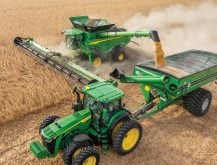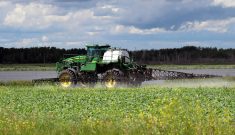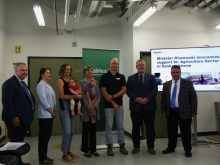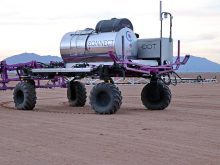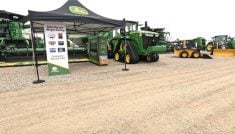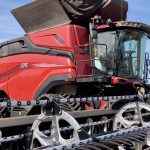Glacier FarmMedia – Modern farming in Canada is data heavy.
There’s the data that powers variable rate and section control.
There are yield monitors, bin sensors and increasingly sophisticated uses of data in the equipment cab.
Read Also
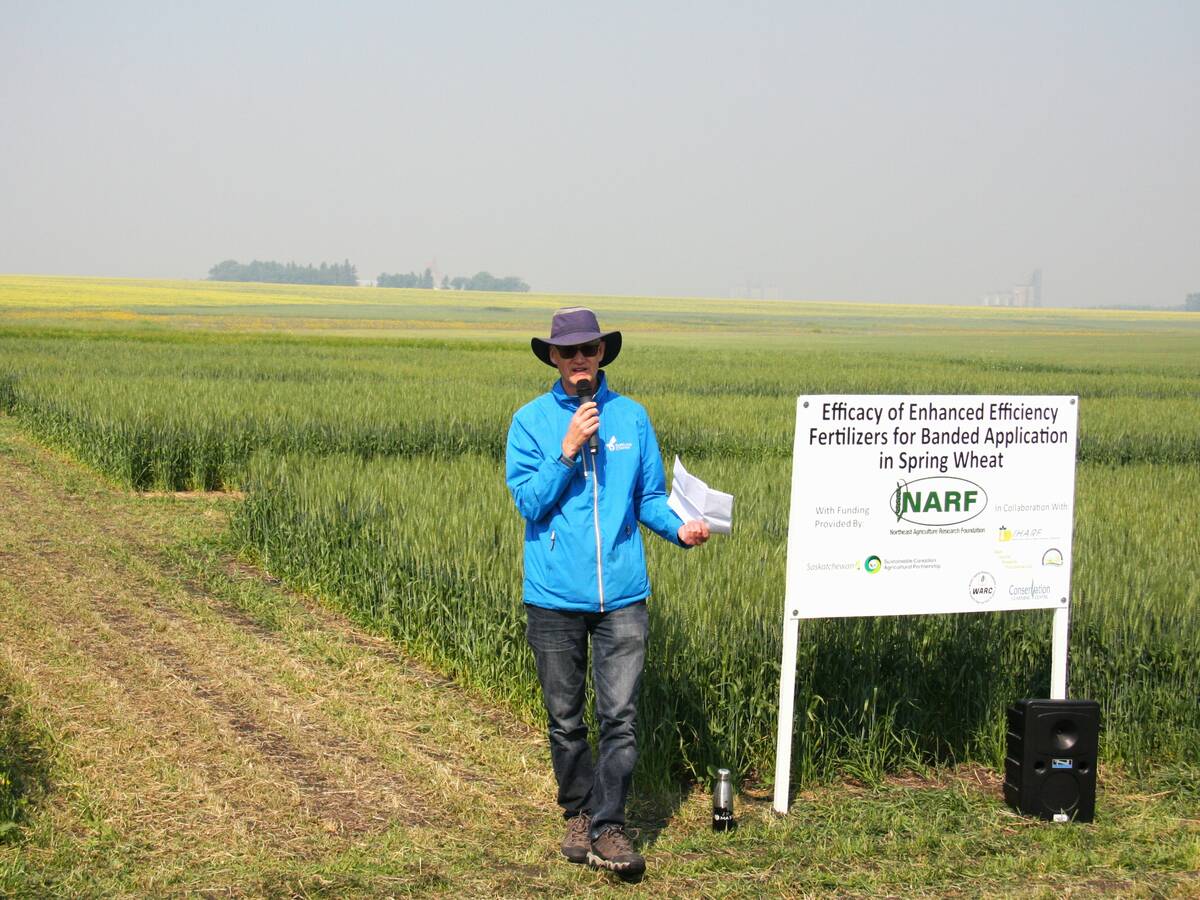
Fertilizer method’s link to emissions studied
A researcher says others studying greenhouse gas emissions aren’t considering how the loss of nitrogen into the atmosphere correlates with fertilizer application or if there is an impact to yield.
There are agronomy prescriptions fed by a full spectrum of soil test results and other data gathered on the farm.
Companies have sprung up around the idea of farm data management. The big names in seed, chemical and machinery, from BASF and Bayer to Johne Deere, all have their own digital platforms, systems and apps. Data increasingly runs through the operational lifeblood of farms.
At the same time that farmers are being sold on the value of digital integration, however, the rise of big data in agriculture has also led to questions about data ownership, security and how much farmers actually trust the technology.
At least one study found that farmers may not feel like they’re getting the bulk of the benefit out of the data they gather.
Farmer attitudes on big data have a lot of nuance, depending on the type of data, who it’s being shared with and where the farmer is located, said researcher Emily Duncan.
Duncan, a postdoctoral research fellow with the University of Regina, studies the social consequences of digital agriculture, including the trade-offs, benefits, challenges and barriers to adopting digitalization on Canadian farms.
She shared insights from her work during the Digitalization in Crop and Beef Production conference in Edmonton in late May. The event explored challenges of data governance in agriculture and was hosted by the Simpson Centre for Food and Agricultural Policy.
Pointing to a cross-sector survey of 1,000 farmers (done as part of her doctorate in 2021), she noted a range of discomfort with how data sharing is currently handled in agriculture.
Prairie perspectives were well integrated in the study. The geographic spread of respondents, Duncan said, actually tilted study results more heavily toward Prairie farmers.
About 15 per cent of Quebec farmers who answered the survey said they were “extremely uncomfortable” with data sharing, Duncan said. In Saskatchewan, though, those numbers climbed to 30 per cent.
The regional differences produce questions about how production type and the involvement of producer groups and co-operatives might impact farmer trust in data sharing, she added.
Duncan also gauged comfort with sharing different categories of data, including weather, soil, inputs and production. Producers were generally comfortable sharing their weather and soil data, but less so when it came to input and production information.
“Even if you have a weather station on your farm or you do soil sampling, there are larger aggregated data sets of these, whereas more personal choices to producers, like the amount of inputs you put in or your production levels, are perhaps more sensitive,” she said.
Growers were also asked which format they would prefer when their data is published: raw, aggregated or summarized.
“Farmers are extremely uncomfortable sharing raw production data,” said Duncan.
“So when we think in terms of implementing data governance mechanisms, having levels of control of what is shared versus what isn’t shared is something that could be put into place in terms of technology development to ensure that farmers feel comfortable with the types of data that are being shared.”
Respondents were also asked about their comfort with four data scenarios:
- Technology and service providers have direct access to farmers’ data through the services they provide.
- Once farmers start using a platform, the company will have access to their data forever.
- Businesses are using data to make a profit without compensating farmers.
- Aggregated data is used by some businesses to influence markets, such as product prices or crop land values.
Producers overwhelmingly identified themselves as extremely to moderately uncomfortable with all four scenarios.
At the same time, all four are baked into today’s commercial agricultural data platforms to varying degrees, said Duncan.
“It’s not to say that those things are right or wrong, but if farmers feel uncomfortable with these things, how transparent are the data governance policies that are enabling these things to occur and are there other options out there for farmers?”
Another question focused on producer comfort sharing data with a range of actors, including research institutions, industry-based organizations, other farmers, government and technology or service providers.
Duncan was surprised by how many respondents — 44 per cent — considered themselves either extremely or somewhat uncomfortable with tech and service providers. She thought government, which also did not fare well in the poll, would be less trusted.
Respondents felt most comfortable sharing with research institutions, with 37 per cent answering that they were extremely or somewhat comfortable. Another 35 per cent said they were extremely or somewhat uncomfortable and 28 per cent were neutral.
“This is very interesting to me because we know that tech and service providers are the ones who they are sharing the data with because they are using those platforms,” said Duncan.
Perhaps the most significant results were seen when the survey asked farmers about who they felt benefited the most from aggregated farm data.
In most cases, it wasn’t the farmers. Only 16 per cent said producers benefit most.
“I think this is an important fact, that farmers don’t see themselves as benefiting the most from farm data,” said Duncan.
“And so, when we think about developing agricultural data governance policies, we need a farmer-first approach so that it isn’t businesses and technology and service providers who are at the forefront of capturing those benefits.”
One attendee asked Duncan about data trusts or co-operatives — which would allow farmers to own their data — and if they could help farmers better manage and benefit from their information.
There are a lot of opportunities for data co-operatives, said Duncan, but farmers need to be open to collaboration. However, farmers tend to use a diversity of platforms, presenting challenges to interoperability.
Research on producer tech adoption has identified the lack of consistent standards — or interoperability — across closed-source data platforms as a frustration among farmers.
“I think in terms of moving towards better data governance, we really need people to come together and be open to collaboration,” Duncan said.
Bill Oemichen with the University of Saskatchewan’s Canadian Centre for the Study of Co-operatives also noted barriers to interoperability.
Although a worthy goal, he said, interoperability may limit competition and, in the process, producers’ discovery of the platforms that work best for them.
“Competition … means that you probably aren’t going to be interoperable, that you’re not going to be sharing your data between all these different medium-sized businesses,” he said.
“And I think that’s fair, but farmers should be able to choose based on the data policies that they feel comfortable with what service provider that they’re going to go with.
“It doesn’t need to be a million choices, but there needs to be some choice there.”







